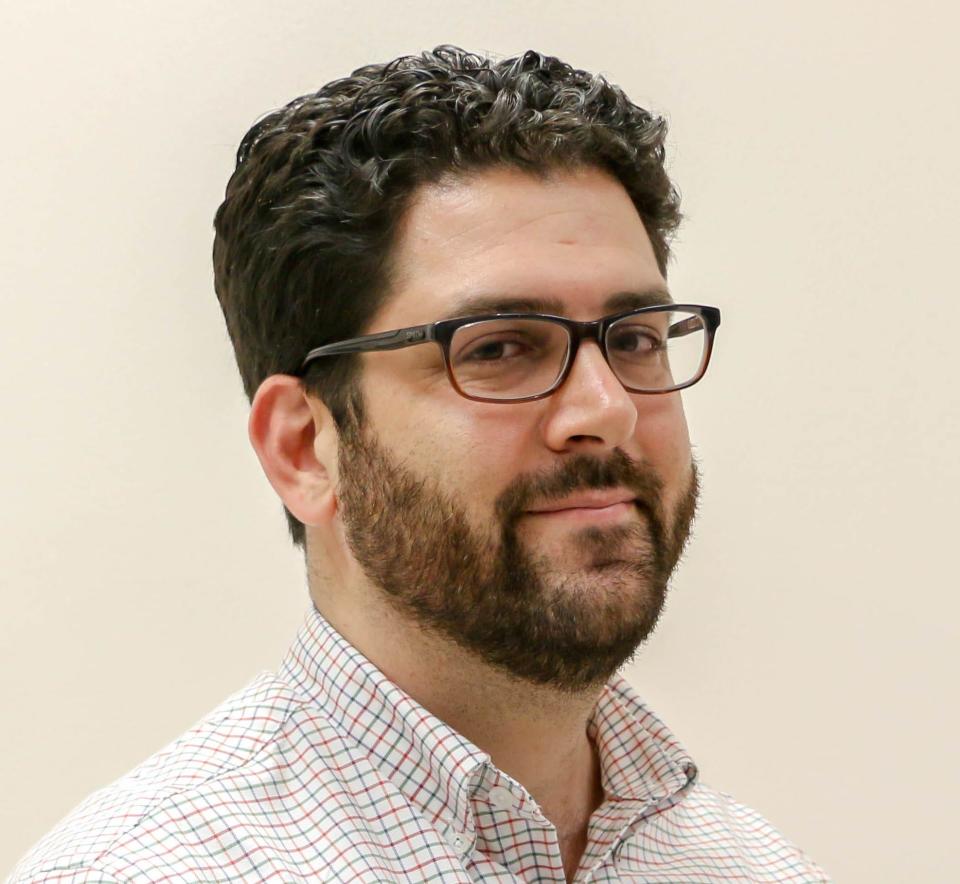Don't ignore the 16,000 Gainesville households who struggle to afford housing
If anyone knows whether Gainesville is facing an affordable housing crisis, it's Anne Ray.
Ray manages the Florida Housing Data Clearinghouse at the University of Florida's Shimberg Center for Housing Studies. The clearinghouse collects housing data from across the state, which can be found online at flhousingdata.shimberg.ufl.edu.
The data reveals a dire situation locally. The federal government defines housing as affordable if it costs no more than 30% of a household’s income. In Gainesville, about 16,000 households spend a higher percentage of their incomes on housing — not including students.
Other figures tell a similar story. The website Apartment List reported a median rent of $1,243 in Gainesville in May — a 19% increase from a year earlier, as compared to increases of 4% to 7% over previous years.
Ray said Gainesville, like other parts of Florida, faces an emergency situation when it comes to a lack of affordable housing.
“There’s just a growing gap between what housing costs and what people can afford,” she said.

These numbers hint at the human toll of high housing costs, with families unable to afford basic necessities or even being forced into homelessness. These stories have been missing from the current debate over zoning changes in Gainesville, which have mostly involved residents criticizing changes that would allow multi-family housing in single-family neighborhoods.
The City Commission majority hasn't helped their case, by failing to build public support for these changes before trying to push them through with an election looming. But opponents need to show they’re open to compromise rather than just rejecting everything the commission is considering.
As Ray said, “It’s OK to say ‘no,’ but you have to articulate what you would say ‘yes’ to.”
Currently, 63% of Gainesville is zoned exclusively for single-family homes. Proposed changes would spread more affordable multi-family housing throughout the city. If allowing quadraplexes to be built on one-third of an acre is too extreme for some residents, they should articulate exactly what they would support in their neighborhoods.
More from Nathan Crabbe:
Land-use and zoning changes would likely take years to impact Gainesville
Ballot measure, ARPA money among options to fund affordable housing in Gainesville
Gainesville is for People seeks to mobilize residents who support pro-housing policies
But zoning changes alone won’t solve Gainesville’s housing crisis and would take years to have an impact. At a recent meeting of The Sun’s community advisory board, city officials described a long list of housing policies and programs being employed and considered that would have a more immediate effect.
Thankfully, city commissioners voted last month in favor of spending $8 million of federal American Rescue Plan Act funding on housing rather than a municipal broadband pilot project. But as Gainesville’s new senior housing strategist, Corey Harris, told The Sun’s advisory board: “Eight million dollars is not going to solve our problem.”
He’s bringing back a full slate of housing strategies to commissioners this month as they consider whether to put an up to $50 million bond measure for housing on November’s ballot. Most commissioners previously said they favor waiting until 2024 to consider such a measure, giving more time to fully develop a plan for the money and ensure residents buy into it.
The Sun has published more than 20 opinion pieces on housing in recent weeks (links to which can be found at bit.ly/sunhousingopinions), with the goal of providing readers with a more complete understanding of the issue. We’re open to publishing even more pieces, especially columns that propose solutions and tell personal stories of the impact of high housing costs (email me at letters@gainesville.com with your ideas).

The personal stories behind the data show the real consequences of Gainesville’s housing crisis, forcing those of us who are secure in our housing to either turn away or do something about the problem. As Sun advisory board member Kendra Vincent said at our recent meeting, “We like to think that we care about our neighbors — but we only do it when it's convenient for us.”
Let’s show that Gainesville is truly a caring community, by helping thousands of local households afford housing and other basic necessities that the rest of us take for granted.
Nathan Crabbe is The Sun's opinion and engagement editor. Follow him on social media at twitter.com/nathancrabbe and facebook.com/nathancrabbe.
Join the conversation
Share your opinions by sending a letter to the editor (up to 200 words) to letters@gainesville.com. Letters must include the writer's full name and city of residence. Additional guidelines for submitting letters and longer guest columns can be found at bit.ly/sunopinionguidelines.
Journalism matters. Your support matters.
Get a digital subscription to the Gainesville Sun. Includes must-see content on Gainesville.com and Gatorsports.com, breaking news and updates on all your devices, and access to the eEdition. Visit www.gainesville.com/subscribenow to sign up.
This article originally appeared on The Gainesville Sun: Nathan Crabbe: Don't ignore Gainesville's affordable housing crisis

